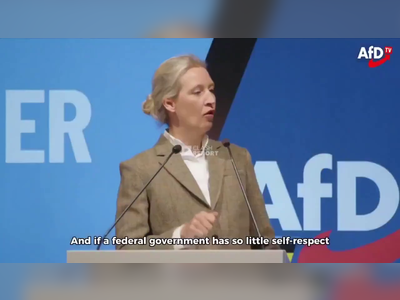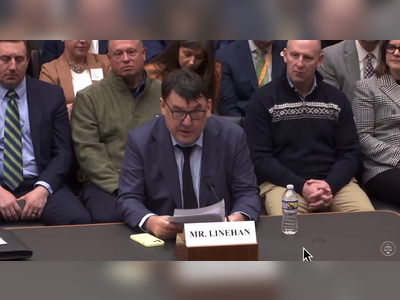
Uncertain Economic Policies and Global Impact: An Overview
Key Insights on Economic Dynamics Following Political Changes
With the election of Donald Trump as President of the United States, the country's economic policy direction has become less predictable, according to an analysis sent to Index by Equilor Investment Ltd. Experts suggest that Trump's promises could potentially negatively impact both the global economy and that of the United States.
However, it is possible that these promises might be diluted or not come to fruition.
A leaked memorandum reported by The Wall Street Journal suggests that Trump plans to conduct a comprehensive review of trade policies, particularly affecting China, Mexico, and Canada.
Notably, the document does not mention European countries, which might indicate that Europe doesn't need immediate concern according to the source.
The leaked information has had a real economic impact, as witnessed by the strengthening of the Hungarian forint on Monday, especially against the dollar.
Equilor's detailed analysis shows that while the American economy grew dynamically last year, this was not appreciated by citizens in the elections favoring the Democratic administration.
This scenario serves as a point of reference for the Hungarian government, which must focus not only on economic recovery but also on public sentiment regarding economic conditions to win future elections.
Experts note that while the inflation in the U.S. has been curbed, upward risks remain evident, with the most significant uncertainty arising from Trump's tariff policies, which could greatly influence both growth and inflation trajectories.
Discussions around tariffs with China, the European Union, and potentially other nations may commence following Trump's inauguration, particularly in sectors critical to national security, such as defense, medical equipment, and energy.
Globally, subdued economic activity is anticipated outside the U.S. according to Equilor's forecasts.
European growth is expected to remain restrained, and China may struggle to stimulate its economy sufficiently to achieve meaningful growth—a scenario that could be exacerbated by potential U.S. tariffs.
In the eurozone, growth uncertainties have replaced inflationary concerns after inflation rates were successfully moderated to a range between 2 and 2.5%.
Germany's industrial sector, contributing nearly 30% of the overall economy, continues to face challenges.
According to the Ministry of National Economy, the sector is reportedly in a severe state due to high energy prices and declining demand, with economic growth projected to be only 1.1% this year, following last year’s 0.7%.
The European Central Bank is lowering rates faster than anticipated, while in the U.S., long-term rate trajectories might emerge higher than expected, limiting maneuverability for central banks in emerging markets.
In Hungary, household consumption is anticipated to continue growing into 2025, driven by real wage increases, while cautionary factors may gradually diminish.
This growth is further bolstered by production commencements from factories such as BYD, BMW, and CATL, even though contributions to the GDP will largely depend on global automotive demand.
GDP growth is projected by Equilor at 2.2% in 2025 and 3.4% next year, aligning with government expectations for this year.
The Hungarian National Bank is expected to implement a total of 50 basis points in rate cuts this year.
The next cut may occur in the third quarter, contingent upon inflation trends and the forint's exchange rate, with the pace possibly accelerating next year.
The weakening of the forint—partially attributable to external factors, including Trump's victory and subsequent dollar strength—has resulted in excess inflation, with expectations of further weakening towards the year's end, where the euro's exchange rate could settle around 420 forints.
Previously, OTP Bank anticipated a 2% economic growth for Hungary this year, compared to the government’s 3.4% expectation.
The economists pointed to potential downward risks including possible U.S. tariffs, workforce market fragility, and potential further declines in investments.
Amid growing uncertainties, protecting investment capital by overweighting low-risk assets in portfolios compared to standard proportions may be prudent.
Natural bonds like PMÁP may lose appeal after the next interest payout cycle, while other domestic government bonds, such as FixMÁP, remain attractive, with new series potentially offering favorable alternatives.
On a final note, National Economy Minister Márton Nagy released a video discussing Hungarian government securities and urged citizens to make 'prudent' investment decisions.
This follows recent financial advice and news discussing the suitability of government securities investments amidst political landscapes.
However, it is possible that these promises might be diluted or not come to fruition.
A leaked memorandum reported by The Wall Street Journal suggests that Trump plans to conduct a comprehensive review of trade policies, particularly affecting China, Mexico, and Canada.
Notably, the document does not mention European countries, which might indicate that Europe doesn't need immediate concern according to the source.
The leaked information has had a real economic impact, as witnessed by the strengthening of the Hungarian forint on Monday, especially against the dollar.
Equilor's detailed analysis shows that while the American economy grew dynamically last year, this was not appreciated by citizens in the elections favoring the Democratic administration.
This scenario serves as a point of reference for the Hungarian government, which must focus not only on economic recovery but also on public sentiment regarding economic conditions to win future elections.
Experts note that while the inflation in the U.S. has been curbed, upward risks remain evident, with the most significant uncertainty arising from Trump's tariff policies, which could greatly influence both growth and inflation trajectories.
Discussions around tariffs with China, the European Union, and potentially other nations may commence following Trump's inauguration, particularly in sectors critical to national security, such as defense, medical equipment, and energy.
Globally, subdued economic activity is anticipated outside the U.S. according to Equilor's forecasts.
European growth is expected to remain restrained, and China may struggle to stimulate its economy sufficiently to achieve meaningful growth—a scenario that could be exacerbated by potential U.S. tariffs.
In the eurozone, growth uncertainties have replaced inflationary concerns after inflation rates were successfully moderated to a range between 2 and 2.5%.
Germany's industrial sector, contributing nearly 30% of the overall economy, continues to face challenges.
According to the Ministry of National Economy, the sector is reportedly in a severe state due to high energy prices and declining demand, with economic growth projected to be only 1.1% this year, following last year’s 0.7%.
The European Central Bank is lowering rates faster than anticipated, while in the U.S., long-term rate trajectories might emerge higher than expected, limiting maneuverability for central banks in emerging markets.
In Hungary, household consumption is anticipated to continue growing into 2025, driven by real wage increases, while cautionary factors may gradually diminish.
This growth is further bolstered by production commencements from factories such as BYD, BMW, and CATL, even though contributions to the GDP will largely depend on global automotive demand.
GDP growth is projected by Equilor at 2.2% in 2025 and 3.4% next year, aligning with government expectations for this year.
The Hungarian National Bank is expected to implement a total of 50 basis points in rate cuts this year.
The next cut may occur in the third quarter, contingent upon inflation trends and the forint's exchange rate, with the pace possibly accelerating next year.
The weakening of the forint—partially attributable to external factors, including Trump's victory and subsequent dollar strength—has resulted in excess inflation, with expectations of further weakening towards the year's end, where the euro's exchange rate could settle around 420 forints.
Previously, OTP Bank anticipated a 2% economic growth for Hungary this year, compared to the government’s 3.4% expectation.
The economists pointed to potential downward risks including possible U.S. tariffs, workforce market fragility, and potential further declines in investments.
Amid growing uncertainties, protecting investment capital by overweighting low-risk assets in portfolios compared to standard proportions may be prudent.
Natural bonds like PMÁP may lose appeal after the next interest payout cycle, while other domestic government bonds, such as FixMÁP, remain attractive, with new series potentially offering favorable alternatives.
On a final note, National Economy Minister Márton Nagy released a video discussing Hungarian government securities and urged citizens to make 'prudent' investment decisions.
This follows recent financial advice and news discussing the suitability of government securities investments amidst political landscapes.
AI Disclaimer: An advanced artificial intelligence (AI) system generated the content of this page on its own. This innovative technology conducts extensive research from a variety of reliable sources, performs rigorous fact-checking and verification, cleans up and balances biased or manipulated content, and presents a minimal factual summary that is just enough yet essential for you to function as an informed and educated citizen. Please keep in mind, however, that this system is an evolving technology, and as a result, the article may contain accidental inaccuracies or errors. We urge you to help us improve our site by reporting any inaccuracies you find using the "Contact Us" link at the bottom of this page. Your helpful feedback helps us improve our system and deliver more precise content. When you find an article of interest here, please look for the full and extensive coverage of this topic in traditional news sources, as they are written by professional journalists that we try to support, not replace. We appreciate your understanding and assistance.











